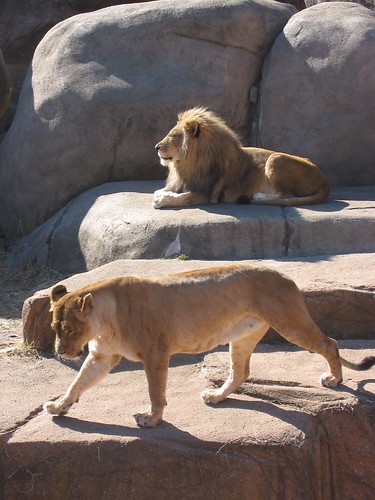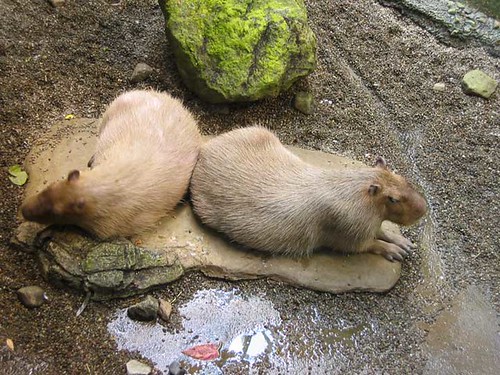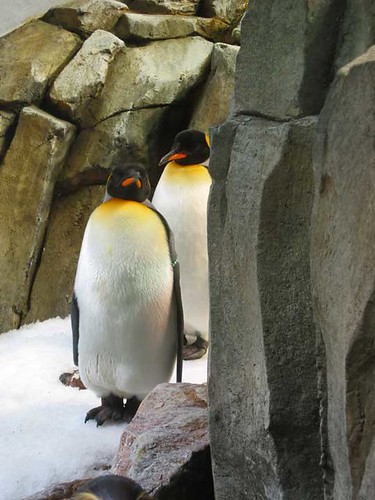
{Photos by rocketlass.}
One of the greatest pleasures offered by novels is their by-the-way presentation of incidental details of how we used to live. In Gerard Woodward's novel August (2001), some characters visit the London Zoo in the late 1930s, and their visit differs starkly from zoo visits we might make today:
Viv ate bananas all day, bananas they'd intended for the chimps and gorillas. Aldous was amused to find that Colette had brought with her two shopping bags heaving with fruit, vegetables, sausages and fresh sardines. She could hardly carry them. He helped her.Apparently, we used to blithely chuck food at the animals on display. I wonder what lucky carnivore was going to get the sausages?
He laughed as Colette tossed a cauliflower at a camel, the vegetable bursting into florets at the disinterested animal's feet. He applauded the accuracy of Colette's sardine-lobbing, the polar bear hardly moving his head as he took the little fish out of the air. He chuckled as Colette passed tomatoes one by one through the bars of a chimp's cage where a black leathery hand received them.
I know that animals in zoos are incalculably better off today than even just a few decades ago--let along seventy years ago--because zookeepers have realized and acted on their understanding that animals, rather than being presented as exotic house pets or trained performers, should be treated as animals, their regimens and habitats tailored letting them live as natural a life as is possible within the confines of a zoo. That, of course, means no bananas through the bars--which, however much your local gorilla might make sad eyes at you, is unquestionably a good thing.

Despite all that, I won't pretend that I wouldn't greatly enjoy getting to feed the giraffes. And the camels! And the capybaras! And especially the penguins!

No comments:
Post a Comment